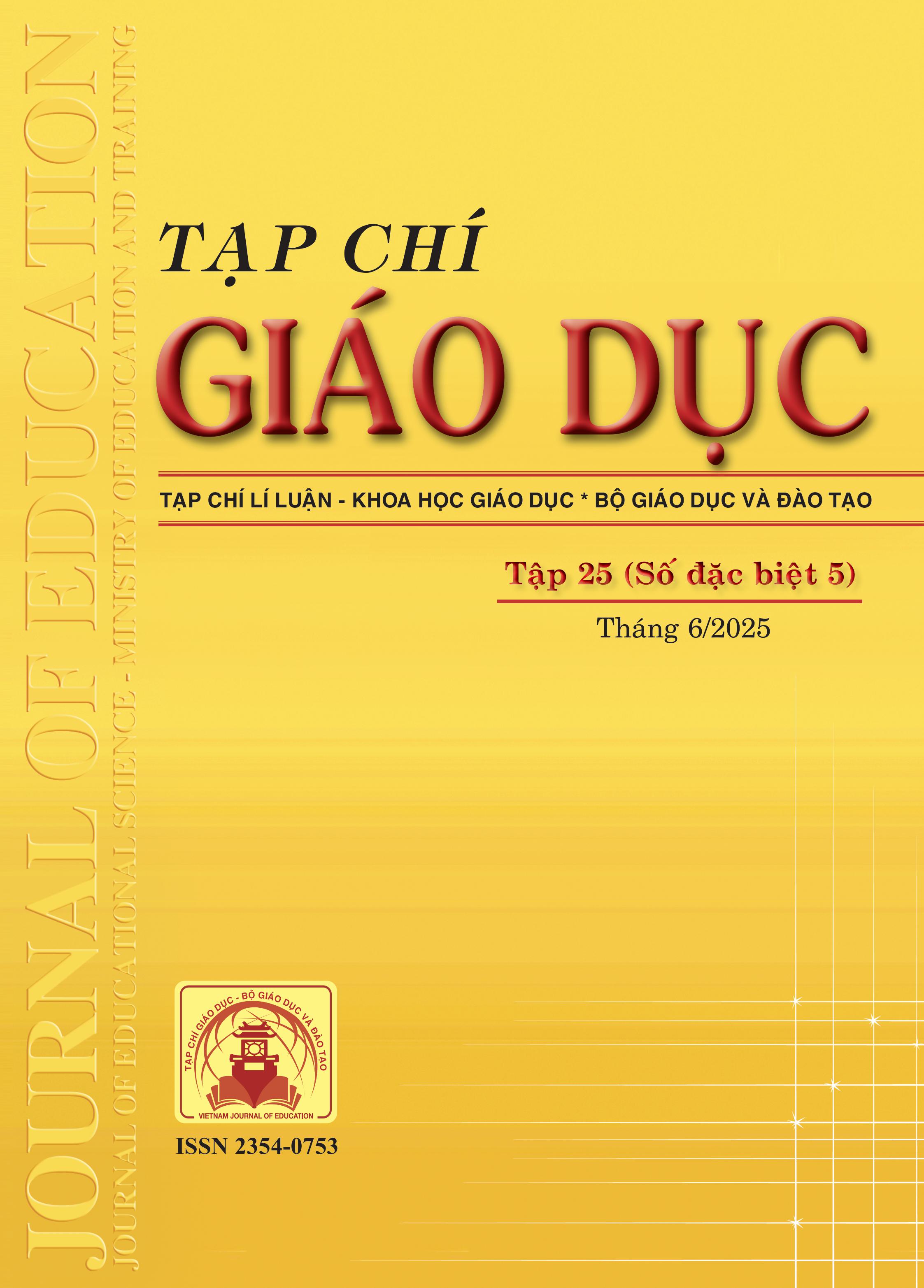Khảo sát tự đánh giá năng lực giáo dục STEM của giáo viên trung học cơ sở tại thành phố Hà Nội
Tóm tắt
In the context of general education reform, STEM education is considered an important orientation in developing comprehensive competence for students. To effectively implement STEM education activities depends largely on the professional competence and pedagogical skills of the teaching staff. This study aims to survey the self-assessment of STEM education capacity of secondary school teachers in Hanoi City through a survey of 165 teachers of natural sciences. The survey results show that teachers have a very positive attitude and high motivation towards STEM education, consider this an important field and are ready to implement it in teaching. Teachers have some fairly good STEM teaching skills, but are still weak in some specific skills such as designing interdisciplinary lesson plans, organizing STEM educational activities, applying integrated STEM teaching methods, etc. The results of this survey will contribute to providing a practical basis, helping education managers build teacher training programs, adjust policies and resources appropriately, thereby narrowing the gap between STEM education orientation in theory and practical implementation in schools.
Tài liệu tham khảo
Bộ GD-ĐT (2018). Chương trình giáo dục phổ thông - Chương trình tổng thể (ban hành kèm theo Thông tư số 32/2018/TT-BGDĐT ngày 26/12/2018 của Bộ trưởng Bộ GD-ĐT).
Bybee, R. W. (2015). The case for STEM education: Challenges and opportunities. National Science Teachers Association.
Hwang, J., & Taylor, J. C. (2016). Stemming on STEM: A STEM education framework for students with disabilities. Journal of Science Education for Students With Disabilities, 19(01). https://doi.org/10.14448/jsesd.09.0003
Kelley, T. R., & Knowles, J. G. (2016). A conceptual framework for integrated STEM education. International Journal of STEM Education, 3(01). https://doi.org/10.1186/s40594-016-0046-z
Lê Huy Hoàng (2022). Giáo dục STEM trong Chương trình giáo dục phổ thông 2018: định hướng và tổ chức thực hiện. Tạp chí Giáo dục, 516, 1-6.
Margot, K. C., & Kettler, T. (2019). Teachers’ perception of STEM integration and education: A systematic literature review. International Journal of STEM Education, 6(1). https://doi.org/10.1186/s40594-018-0151-2
Nasri, N. M., Nasri, N., & Talib, M. A. A. (2020). Towards developing Malaysia STEM teacher standard: Early framework. Universal Journal of Educational Research, 8(7), 3077-3084. https://doi.org/10.13189/ujer.2020.080736
Nguyễn Quang Linh, Hà Trần Phương (2019). Giáo dục STEM trong chương trình giáo dục phổ thông mới. Tạp chí Khoa học và Công nghệ - Đại học Thái Nguyên, 206(13), 25-31.
Nguyễn Văn Biên, Tưởng Duy Hải, Trần Minh Đức, Nguyễn Văn Hạnh, Chu Cẩm Thơ, Nguyễn Anh Thuấn, Đoàn Văn Thược, Trần Bá Trình (2019). Giáo dục STEM trong nhà trường phổ thông. NXB Giáo dục Việt Nam.
Nguyen, T. T. (2024). Applying physics knowledge and STEAM education in high school: Connecting traditional Vietnamese culture through the moon-shaped lute production project. European Journal of Educational Research, 13(01), 325-339. https://doi.org/10.12973/eu-jer.13.1.325
Phạm Ngọc Sơn, Vũ Thị Thu Hoài, Võ Văn Duyên Em (2023). Năng lực giáo dục STEM của giáo viên dạy học môn Khoa học tự nhiên tại thành phố Hà Nội. Tạp chí Khoa học Giáo dục Việt Nam, 23(23), 282-288.
Vieira, R. M., Tenreiro-Vieira, C. C., Bem-Haja, P., & Lucas, M. (2023). STEM teachers’ digital competence: Different subjects, different proficiencies. Education Sciences, 13(11). https://doi.org/10.3390/educsci13111133
Đã Xuất bản
Cách trích dẫn
Số
Chuyên mục
Giấy phép

Tác phẩm này được cấp phép theo Ghi nhận tác giả của Creative Commons Giấy phép quốc tế 4.0 .












